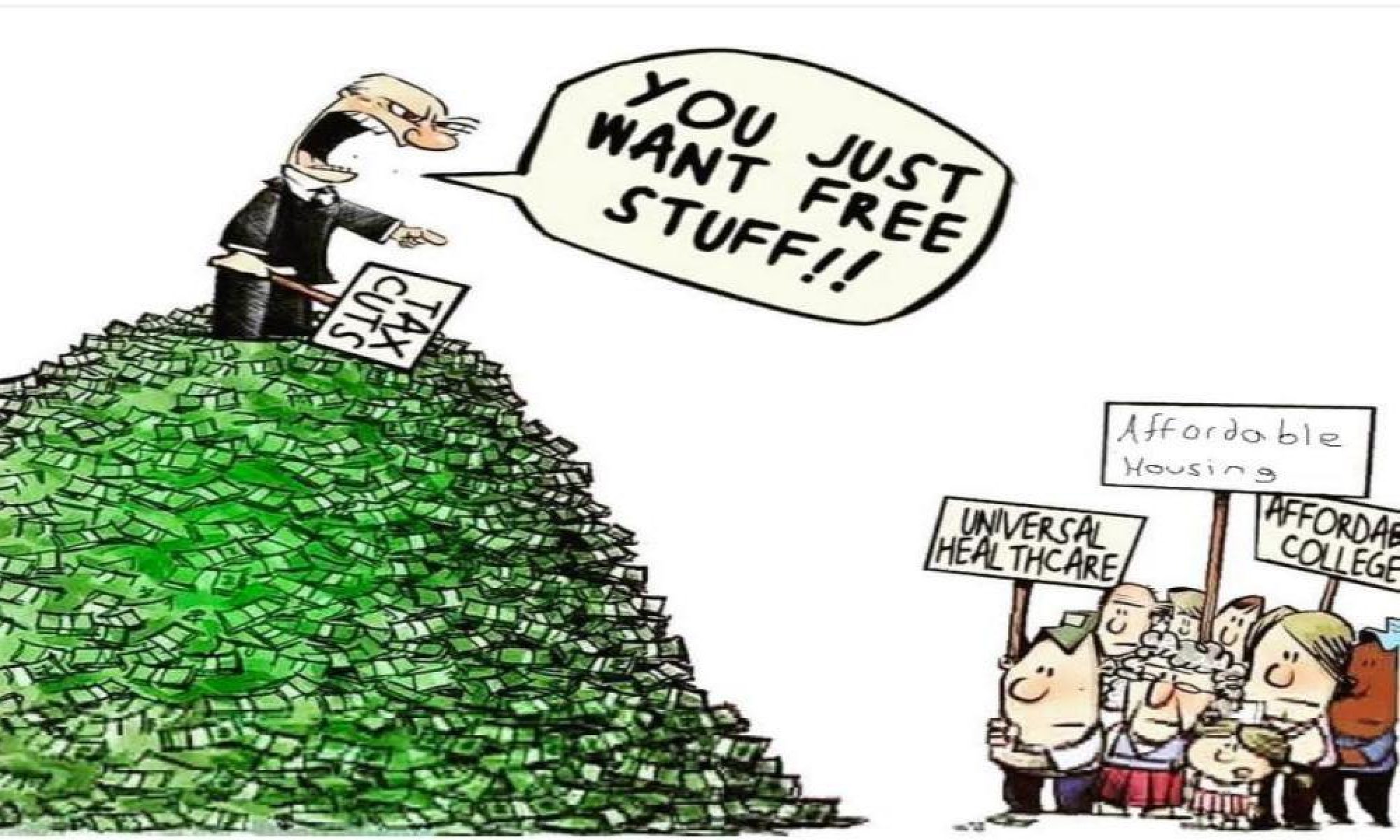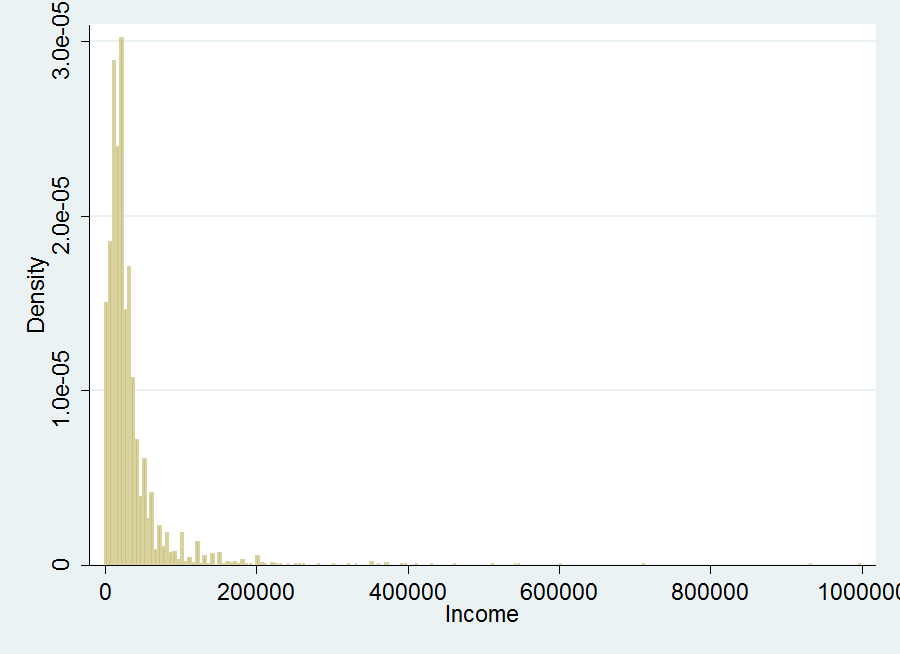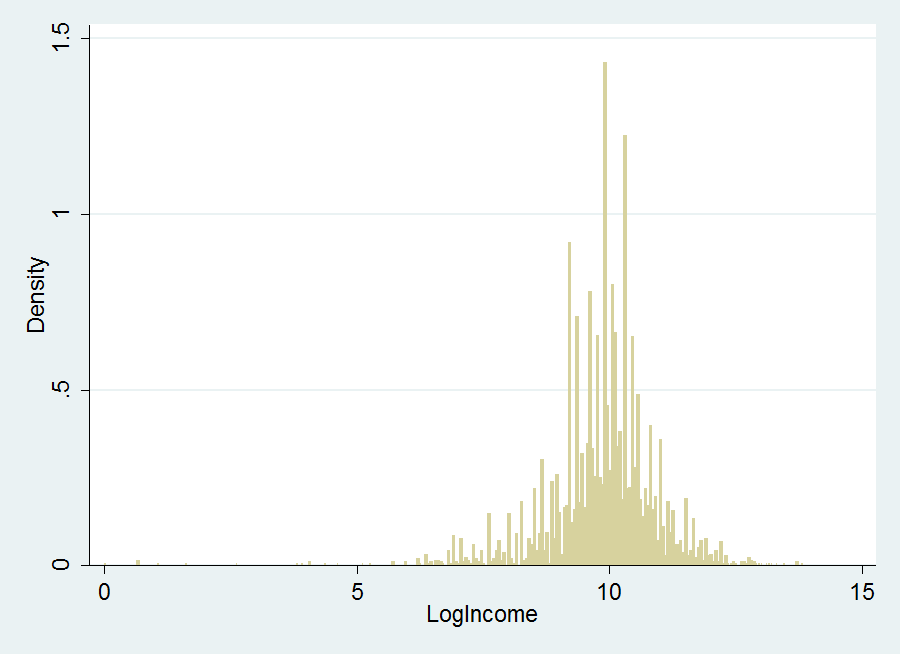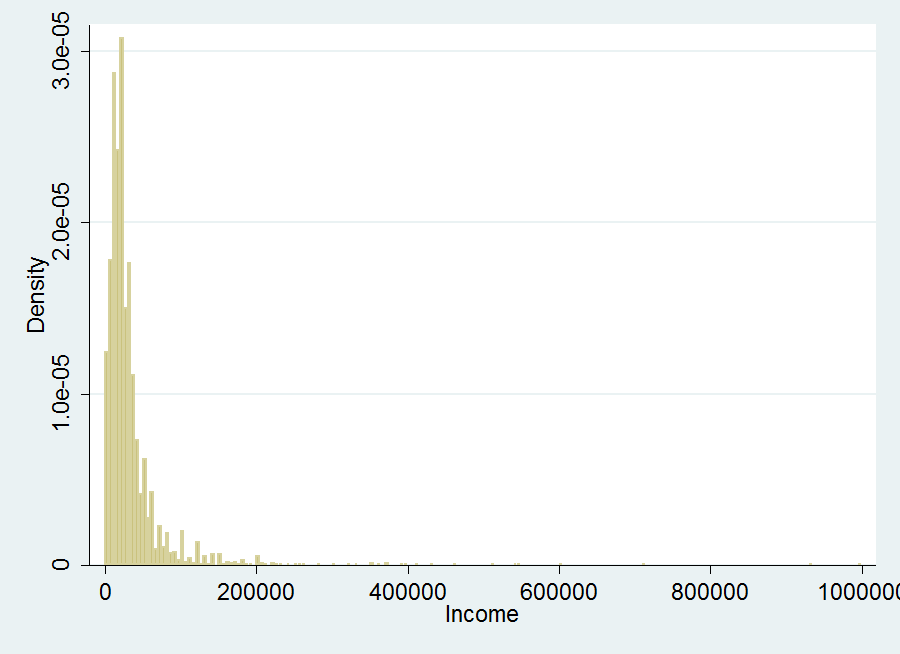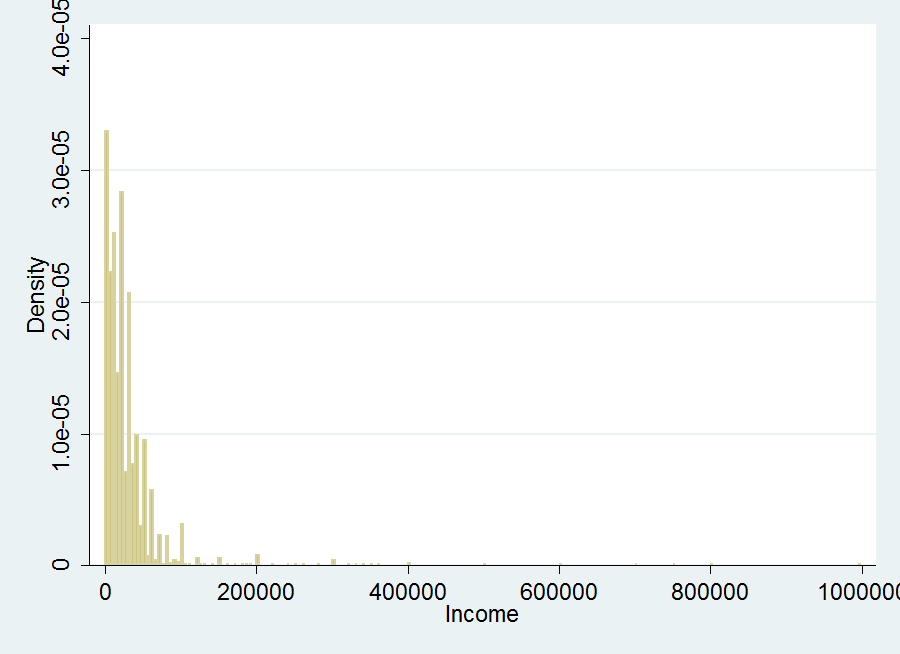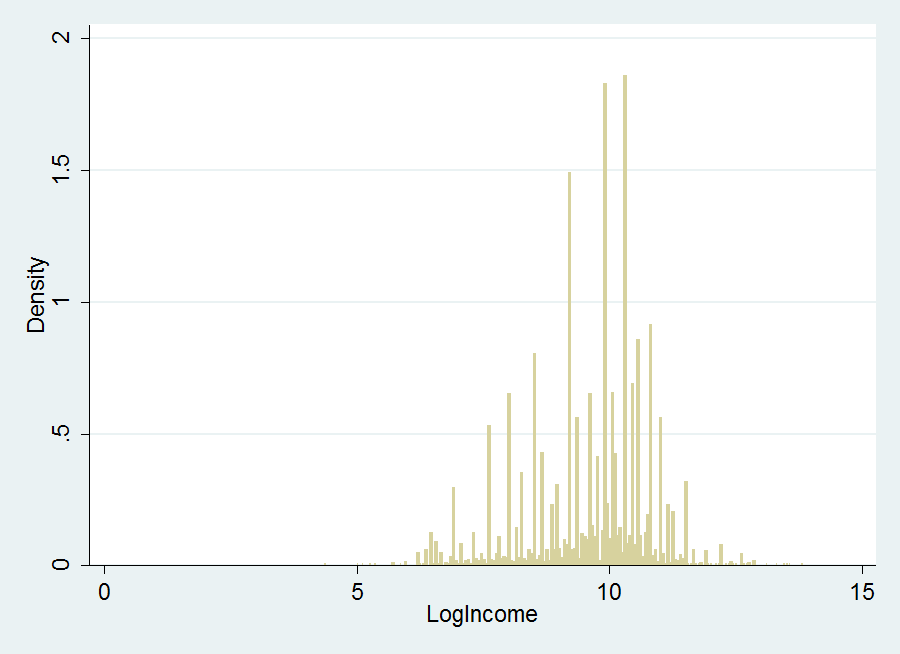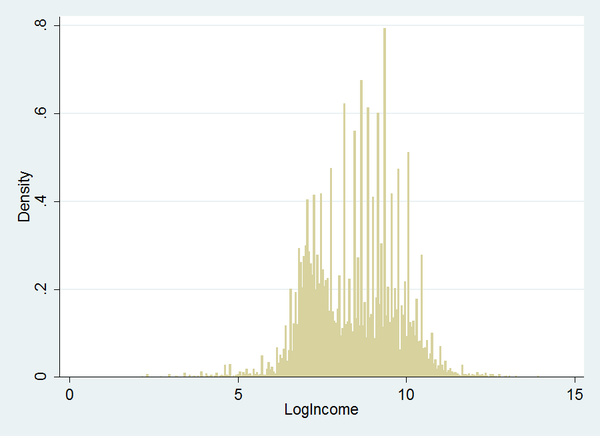(写在前面:右派们经常拿委内瑞拉的例子攻击左派和社会主义,因为查韦斯自称社会主义政权,但事实上,查韦斯对民主的破坏和官僚独裁控制企业导致了马杜罗黑帮操纵汇率贬值货币劫掠委内瑞拉人民,才导致了委内瑞拉的灾难。教训是,没有民主,不可能有社会主义,马杜罗不过是又一个斯大林而已。)
Maduro’s defenders on the Left tend to turn a blind eye to a situation which can only be described as desperate. But its primary cause is the government’s policies. Español
马杜罗的左派支持者试图对绝望的现状装瞎。但是造成这一现状的首要原因是政府政策。
反抗者在2017年5月面对委内瑞拉国防部队。来源:wikimedia
Recent footage from Venezuela reveals an increasingly desperate situation. In videos posted online, people can be seen chasing livestock through the fields to butcher it for its meat, while others resort to eating dogs and cats on the streets of Caracas.
最近来自委内瑞拉的镜头揭露了一种越来越令人绝望的现状。在被上传到网络上的视频中,会看到人们在田野中为了肉食追逐家畜,而其他人在加拉加斯(备注:委内瑞拉首都)的街头被迫寻找狗和猫作为食物。
Food-related protests and the looting of stores have become more and more widespread, while thousands flood across the border into neighboring countries.
与食物相关的反抗和对商店的搜刮越来越普遍,同时数千人越过边境逃往相邻的国家。
Despite all of this, Maduro and his defenders on the left have basically turned a blind eye to this situation. They claim the mainstream reports are exaggerated, and that the situation is the result of a US-led “economic war” intended to sabotage the Maduro government.
尽管发生了这一切,马杜罗和其左派支持者对这一切装瞎。他们宣称主流报告是夸大的,而这一现状是美国政府发动的试图破坏马杜罗政府的“经济战争”的结果。
Others admit Maduro deserves some of the blame, but claim he has been limited by low oil prices and sabotage from the right-wing opposition. Supporting the Maduro government as a bulwark against imperialism and neoliberalism is still the best option, they assure.
其他人承认马杜罗应当被责怪,但宣称他被低价石油和右派反对者们的破坏限制住了。支持马杜罗政府作为对抗帝国主义和新自由主义的堡垒仍然是最佳选择,他们这么假设。
However, while it is true that Washington and its local allies have long sought to overthrow the Venezuelan government, a closer look at the current crisis shows a supposed “economic war” has very little to do with it. Nor does it have much to do with low oil prices.
然而,虽然华盛顿和它的本地盟友长期寻求推翻委内瑞拉政府,对于现在的危机的近距离观察显示被期待的“经济战争”几乎没有起到作用。也不是低油价在起作用。
The primary cause of growing hunger and desperation in Venezuela today are the government’s very own policies, which are under control of President Maduro himself.
今天造成委内瑞拉不断增长的饥荒和绝望的首要原因是政府自身的政策,而政府是被总统马杜罗自己控制的。
In fact, the primary cause of growing hunger and desperation in Venezuela today are the government’s very own policies, which are under control of President Maduro himself, and could easily be rectified if he so desired.
事实上,天造成委内瑞拉不断增长的饥荒和绝望的首要原因是政府自身的政策,而政府是被总统马杜罗自己控制的,而如果他自己愿意那么很容易纠正这些政策。
But the policies remain in place, and the reason is that government insiders are benefiting enormously from them. As ordinary Venezuelans scramble to survive, Maduro and his friends are lining their pockets with oil dollars.
但是这些政策被维持下来,因为政府内部人员大大受益于这些政策。当普通委内瑞拉人挣扎求生时,马杜罗和他的朋友们口袋里装满了美元。
Instead of coming to their defense, and minimizing the scale of the disaster, the left should seek to understand how it got to this point, and how it might have been avoided.
与为他们辩护和缩小灾难规模相反的是,左派们应当寻求理解事情是如何变成这样的,以及如何防止历史重演。
“A gang of thieves”
“都是窃贼的黑帮”
At the crux of Venezuela’s crisis is the currency control system, which began under Hugo Chavez as a way to restrict access to foreign exchange and ensure enough dollars to import priority goods.
委内瑞拉灾难的症结在于货币控制系统,由乌戈查韦斯开始的用于限制对外交易和保证足够美元进口优先货物。
Like previous attempts at fixed exchange rates, there was some corruption and abuse of this system. But it wasn’t until Maduro came to power in 2013 that things really started falling apart.
这一系统之前试图固定汇率,但其中有一些腐败和滥用。但直到2013年马杜罗取得政权后事情才开始变糟。
“A gang was created that was only interested in getting their hands on the oil revenue,” says Hector Navarro, former Chavista minister and socialist party leader.
“一个不仅对向石油伸手的黑帮被创造出来了,”Hector Navarro说,他是查韦斯政府前首相和社会党领导。
“They are thieves with no ideology,” he added.
“他们是没有任何意识形态的盗贼,”他补充说。
Chavez’s former finance minister, Jorge Giordani, has said the same thing, estimating that some $300 billion have been embezzled in this way. Navarro and Giordani were long time members of Chavez’s inner circle and mainstays of his cabinet until they became critical of Maduro in 2014 and were sacked.
查韦斯的前金融部长, Jorge Giordani,说了相同的话,他估计有三千亿被这样侵吞了。Navarro 和 Giordani 长期在查韦斯的小圈子内,是查韦斯内阁的支柱,直到他们在2014年批评马杜罗然后被开除。
Longtime Chavista insider Mario Silva also warned about this back in 2013, claiming that a group of officials headed by then Vice President Diosdado Cabello were gaining the upper hand inside the government, and were “bleeding” the country of its dollar reserves.
很久以前查韦斯政府内部的Mario Silva也在2013年警告说,一个由副总统Diosdado Cabello带头的组织在政府内攫取权力,然后通过美元使国家“流血”。
This made Giordani’s dismissal in 2014 especially noteworthy, as he was the primary person in charge of keeping the currency regime in check, making periodic adjustments to avoid major distortions. Once Giordani was out of the way, the currency was allowed to get increasingly overvalued, greatly benefitting the “gang of thieves” and their foreign exchange schemes.
这导致了Giordani在2014年的被解雇是特别值得一提的,因为他是主要负责这个货币政权被控制,进行周期性调整以防止扭曲的人。一旦Giordani被赶走,货币被允许大规模贬值,这大大有利于“都是盗贼的黑帮”和他们的对外交易机制。
委内瑞拉的货币从2013年开始迅速贬值。
The basic scheme goes like this: those who can get access to foreign exchange at the official rate set by the government then simply turn around and sell those dollars on the black market, or deposit them in bank accounts abroad. The greater the distance between the black-market rate and the official rate, the more profitable the scheme becomes.
基础机制是这样的:那些能够在政府规定的官方汇率下进行对外交易的人转身把这些美元卖到黑市上,或者存入海外账户。黑市汇率和官方汇率之间的差距越大,这一机制的利润就越大。
Since 2013, Maduro has refused to make any significant adjustments to the exchange rate, allowing rampant inflation to continually erode the real value of the currency. The going rate for dollars on the street is now thousands of times higher than the official rate, creating huge incentives for illicit activities.
从2013年开始,马杜罗拒绝对交易汇率进行任何显著调整,允许猖獗的通货膨胀持续侵蚀货币的实际价值。在街上美元汇率已经几千倍高于官方汇率,制造了违法活动的巨大诱因。
The going rate for dollars on the street is now thousands of times higher than the official rate, creating huge incentives for illicit activities.
在街上美元汇率已经几千倍高于官方汇率,制造了违法活动的巨大诱因。
As a result, hundreds of millions of dollars have disappeared in goods that are never imported, infrastructure that is never completed, and briefcase companies that don’t exist.
结果是,数亿美元从未进口的货物而消失了,基础建设从来没有完成,皮包公司也并不存在。
Instead of using the oil dollars to pay for basic needs, government officials and their associates simply abscond with them, leaving ordinary Venezuelans to deal with the consequences.
与用石油换取的美元支付基本需求相反,政府官员和合作者们卷款潜逃了,留下普通委内瑞拉人去面对他们造成的后果。
Numerous examples have come to light in recent months, the common denominator being that those involved usually have close ties to the Maduro government—a necessary ingredient for acquiring dollars at the official rate.
很多案例在最近的月份中被揭露,那些参与这些的人通常和马杜罗政府有紧密联系——一个必要的以官方汇率获取美元的成分。
President Maduro and his vice president El Aissami have also gotten in on the fun. According to the former attorney general, a company owned by El Aissami was granted $120 million to import food from Mexico, while another $340 million went to a company with ties to Maduro.
马杜罗总统和他的副总统El Aissami 也乐在其中。根据一个之前的律师的概括,一个由El Aissami拥有的公司从进口墨西哥食物中获取了120百万美元,同时340百万美元进入了与马杜罗有紧密联系的一家公司。
All in all, the two companies received nearly half a billion dollars at a rate of exchange that was only one percent of the real value of the dollar at the time. This is why Maduro and gang aren’t interested in fixing the distorted currency—it allows them to funnel massive amounts of oil dollars into their own pockets.
总的来说,这两家公司收到了几乎五亿美元,但这些钱只占那些通过表现真实价值的汇率兑换来的美元的百分之一。这就是为什么马杜罗和他的黑帮没兴趣修复被歪曲的货币——这允许他们将大量石油换来的美元装入他们自己的腰包。
Squeezing the poor
被压扁的穷人
With so much of state revenue being misappropriated through the currency system, or sent abroad in the form of debt payments, there is little money left over for the needs of ordinary Venezuelans. But instead of fixing the currency, or defaulting on the debt, the solution for Maduro has been to impose austerity on the country.
这么多国家收入被通过货币系统挪用,或者被送到国外用以支付债务,普通委内瑞拉人手中几乎没有钱留下来。但是与修复货币或债务违约相反的是,马杜罗的解决方案是在国家内进行紧缩。
Since 2012, imports have been cut by over 65 percent, even amidst widespread shortages.Social spending has also been cut drastically, with total expenditure reaching a lower percent of GDP than the neoliberal years of the 1990s.
从2012年开始,进口被减少了65%,甚至在短缺扩散的时候还在持续。社会开支也大幅被削减,总支出占GDP的比例比1990s的新自由主义时期还低。
The results of these cuts have been very predictable, causing a collapsing health system, severe shortages of food and medicine, skyrocketing infant and maternal mortality, and thousands of preventable deaths.
这些削减的结果很容易预测,造成了医疗系统的崩溃,食物和药品严重短缺,婴儿和母亲死亡数暴涨,以及数千本可以避免的死亡。
Wages have also been slashed by more than 90 percent since 2013, as runaway inflation has been met with inadequate wage hikes from Maduro. The national minimum wage has gone from about $300 in 2012 to less than $5 in 2018, leaving nearly half of the Venezuelan population scrambling to get by on just $5 per month!
工资从2013年起也降低了超过90%,通货膨胀和马杜罗的不足的工资上涨碰到了一起。国家最低工资从2012年的300美元降低到2018年的少于5美元,这导致几乎一半的委内瑞拉人每月只能得到5美元收入!
委内瑞拉的国家最低工资从2012年开始崩溃了。
As might be expected, this has caused growing hunger and malnutrition. Hundreds of thousands of Venezuelans now flood into neighboring countries in search of basic necessities, while others attempt the risky and often deadly trip by boat to nearby islands.
可以预料的是,这一切造成了不断增长的饥荒和营养不良。成百上千的委内瑞拉人逃难到邻国以寻找基本需求,同时其他人试图通过危险而经常是致死的旅途航行到附近的岛屿。
Meanwhile, workers are leaving their jobs en masse as their salaries have become worthless. Major sectors of the economy are now critically understaffed, only worsening what is by far the worst economic crisis in Venezuelan history.
同时,工人们很多都不去工作了,因为他们的薪水变得没有任何价值。经济总体情况是人手不足,只会比委内瑞拉历史上最糟糕的经济危机还要糟糕。
A litany of excuses
一连串的借口
Maduro and his defenders point to a number of factors to deflect blame for this situation—from the “economic war,” to low oil prices, to US sanctions. But none of these excuses holds much water.
马杜罗和他的支持者们寻找了一些现状的替罪羊——从“经济战争”,到低价石油,到美国的制裁。但是其中没有任何借口是说到点子上的。
The capitalists and food traffickers accused of “economic war” are actually just following the incentives set up by government policies, and are often well-connected insiders themselves. Some of the worst food traffickers have been shown to be people inside the military.
资本家们和食物走私者们责怪的“经济战争”,实际上只是在追随政府政策制造的诱因,而这和政府内部人员有紧密联系。一些最糟糕的食物走私者们被发现是军队内部人员。
Meanwhile, it is the government alone that controls the exchange rate and the allocation of oil dollars, making this a fairly easy problem to solve. But despite constant calls to fix it, Maduro has insisted on maintaining the currency system, and has continued to handover the oil dollars to those who squander them.
同时,政府单独控制汇率和石油美元的分配,公平的说很容易解决问题。但是不管普通人如何呼吁解决问题,马杜罗坚持维持货币系统,继续将石油美元交给那些挥霍他们的人。
As for falling oil prices, they only exacerbated what Maduro’s policies were already causing. By the time oil prices fell in late 2014, the economy had already been contracting for three straight quarters, wages had already dropped 80 percent, and imports had been cut by 25 percent.
至于石油价格的降低,只是加剧了马杜罗的政策早就造成的恶劣影响。在2014年后期油价降低时,经济已经在三个季度内都负增长了,工资已经降低了80%,进口也被降低了25%。
The growing inflation, food shortages, and currency distortions at the root of the crisis all began in late 2012, two years before oil prices had fallen.
加剧的通货膨胀,食物短缺,货币扭曲是2012年晚期开始的危机的根源,而这在油价降低的两年前。
The same goes for US sanctions, which had a negligible impact until Trump imposed broader sanctions last year. By that time, Venezuela’s economy had been in a free fall for four straight years.
美国制裁也是一样,之前的影响微不足道,直到trump去年征收边境关税。在那时,委内瑞拉的经济已经持续四年自由落体式下跌了。
In other words, it makes little sense to try to point the finger at things that did not occur until after the crisis was well underway. The truth of the matter is that Maduro’s own policies have destroyed Venezuela’s economy far more than Washington or the opposition could have ever dreamed possible.
换句话说,试图将手指指向那些直到危机已经在进行中了才发生的事情是说不通的。事实是马杜罗自己的政策比起华盛顿或反对者所梦想的更有效的毁灭了委内瑞拉的经济。
Lessons for the left
左派需要吸取的教训
Venezuela’s collapse has a number of important lessons for the left, but in order to grasp them, we must take an honest look at what went wrong. While Maduro is clearly to blame for the current disaster, Chavez’s economic policies also contributed in important ways.
委内瑞拉的崩溃给了左派一些重要的教训,但是为了了解它们,我们必须仔细观察什么地方出错了。马杜罗很显然是现在的灾难的责任人,但查韦斯的经济政策也很重要。
Chavez’s approach to the economy generally involved taking over strategic sectors, with the notion that underinvestment by the private sector could be remedied by state control. Firms were often expropriated on a whim, and state-owned endeavors were launched without careful thought or planning.
查韦斯对经济的干预大致来说是参与接管战略领域,主张私人领域的投资不足可以通过政府控制弥补。企业经常在怪念头之下被没收,而政府所有的努力在没有谨慎思考或计划的前提下发动。
This led to a bloated bureaucracy, growing corruption, and a long-term decline in key sectors. State-owned enterprises often ended up in the hands of corrupt bureaucrats who made them into their own domains, and then milked them dry.
这导致了膨胀的官僚独裁,增长的腐败,和在关键领域的衰退。政府所有的企业经常在腐败官僚的手中倒闭,这些腐败官僚们把手伸进去,然后把企业吸干。
A key example of this was in 2010, when Chavez launched an offensive in agriculture by expropriating hundreds of farms and food industries. Given that these enterprises were often undercapitalized and unproductive, state intervention was necessary.
一个关键例子是在2010年,当查韦斯启动一个侵略性的农业计划,没收上百农场和食物工厂。这些企业经常资金不足和生产不足,政府介入是有必要的。
But most of the firms were then handed over to bureaucrats who had little preparation or oversight. The result was complete mismanagement, and a drastic decline in food production thereafter.
但是绝大部分企业被交给了那些几乎没有准备或眼界的官僚们。结果是完全的管理不当,然后造成了激烈的食物产量减少。
食物产量在2010年政府接手之后急剧下跌。
The lesson here is that state takeovers of major sectors of the economy are not necessarily a good idea in poor countries with weak institutions.
这里的教训是政府接管主要经济领域对于机构薄弱的穷困国家来说不见得是一个好主意。
These types of interventions must take into account the capacity of the state to administer enterprises without running them into the ground, especially in sectors so crucial to the national economy.
这些类型的介入必须考虑政府管理企业的能力,而不是将企业搞砸,特别是那些对国家经济来说非常关键的领域。(备注:政府官僚包办没有好结果的又一个案例。)
One alternative might have been to turn control over to the workers, and, in fact, there was a proliferation of community and workers’ organizations under Chavez.
另一种选择是将企业的控制权交给工人,而事实上,在查韦斯统治下社区和工人组织的确有所增长。
But the government did not do this in most cases, and here lies another important lesson for the left.
但是政府在大部分案例中并没有这么做,而这是对左派的另一个重要教训。
While increasing worker power and control over production should be a goal of any socialist project, to be successful, workers and social movements must build organizational power that is independent from political parties and the state.
增强工人力量和控制生产应当是任何社会主义计划的目标,但为了能够成功,工人们和社会运动必须建立独立于政党和政府的组织化力量。
In Venezuela, the communal movement was very much a state-sponsored initiative, with local communities following directives on how to organize from above. The extent of their power and control over production was decided by the government, not workers.
在委内瑞拉,社区运动大部分由政府资助的初始力量发起,而本地社区追随在这一基础上进行组织。他们的力量的规模和对生产的控制由政府决定,而不是工人决定。
Nowadays, the communes are used as mechanisms of patronage and control rather than vehicles of liberation. Members get certain perks and benefits from the government, but come election time they are forced to vote for government candidates to avoid losing those benefits.
现在,这些公社被用来当成赞助和控制的机制,而不是自由的媒介。成员们从政府获取额外补贴和好处,但在选举时他们被迫投票给政府的候选人以免失去这些好处。(备注:很明显查韦斯政府通过收买控制了委内瑞拉人民,直接导致民主被破坏。)
Finally, there is an important lesson on the question of liberal democracy. Though Chavez was justified in his criticisms the exclusionary kind of democracy that existed in the country before 1998, in attempting to reform this system, he ended up creating something even worse.
最后,在关于自由民主的问题上有个重要教训。虽然查韦斯通过批判在1998年之前存在于这个国家的排他性的民主而获得合法性,作为对改造这一系统的尝试,他最终制造了更糟糕的东西。
Although a new constitution, greater participatory democracy, and transparent electoral system were all major accomplishments, at the same time, virtually all organs of the state were being stacked with party loyalists, and yes-men that were valued more for their obedience than their competence.
虽然有一个新宪法,更大程度的参与民主,和透明的选举系统是所有的主要成就,但同时,所有政府的组成被堆叠了政党忠诚者,和那些服从比才干更重要的奴才。
The promising new institutions created by the constitution slowly became little more than rubber stamps for orders coming out of the executive. When Chavez died and Maduro’s “gang of thieves” gained the upper hand inside the government, there were no longer any checks on their power.
宪法承诺建立的新机构慢慢变成了执行命令的橡皮图章。当查韦斯死后,马杜罗的“都是窃贼的黑帮”在政府内掌握权力时,此时对于权力已经没有任何限制了。(备注:查韦斯对民主的破坏最终导致了马杜罗们的胡做非为,所以社会主义只有在民主的基础上才能建立。)
The lack of independent institutions allowed them to force out internal opponents, neutralize the congress, hold fraudulent elections, and form an all-powerful body that now runs the country as they please.
独立机构的缺乏允许他们赶走内部反对者,关闭议会,进行选举欺诈,然后建立了一个全权政府使得他们能够随心所欲的操纵这个国家。
Instead of making liberal democracy more democratic, the Maduro regime now deports journalists, jails union leaders, detains activists, murders whistleblowers, and tear gasses the poor and hungry. What was once an infallible electoral systems has now been stripped of all the guarantees that ensured fair elections, allowing Maduro and gang to bend everything in their favor.
与使自由民主更民主相反的是,马杜罗政权现在驱赶记者出境,把工会领袖关进监狱,关押反抗者,谋杀吹哨人,向穷困和饥饿的人们发射催泪瓦斯。曾经的万无一失的选举系统现在被剥夺了一切保证公正选举的元素,允许马杜罗和他的黑帮将一切扭曲为他们喜欢的模样。
All of this should serve as an important lesson for the left—that despite the major limitations of liberal democracy, having some checks and balances is better than having none.
所有这些应当提供给左派一个很重要的教训——尽管自由民主有很多限制,有限权和平衡比没有好。
Had Chavez allowed room for independent institutions, and permitted checks on the power of the presidency, Venezuela might not be in the mess it is today.
如果查韦斯允许独立机构存在,承诺限制总统权力,委内瑞拉也许不会陷入今日的混乱。
As the country heads into another very questionable election, the left should not give its support to the corrupt and authoritarian Maduro regime, nor should it support the US-aligned right-wing opposition.
在这个国家开始进行另一次非常有问题的选举时,左派不应当支持腐败和独裁的马杜罗政权,也不该支持和美国联盟的右翼反对派。
Our support and solidarity should instead be with the Venezuelan people, and their right to democratically decide their fate. That is the only possible solution to the crisis.
相反,我们的应当支持和团结委内瑞拉人民,支持他们民主决定他们的命运的权利。这是唯一的可能解决危机的方法。
